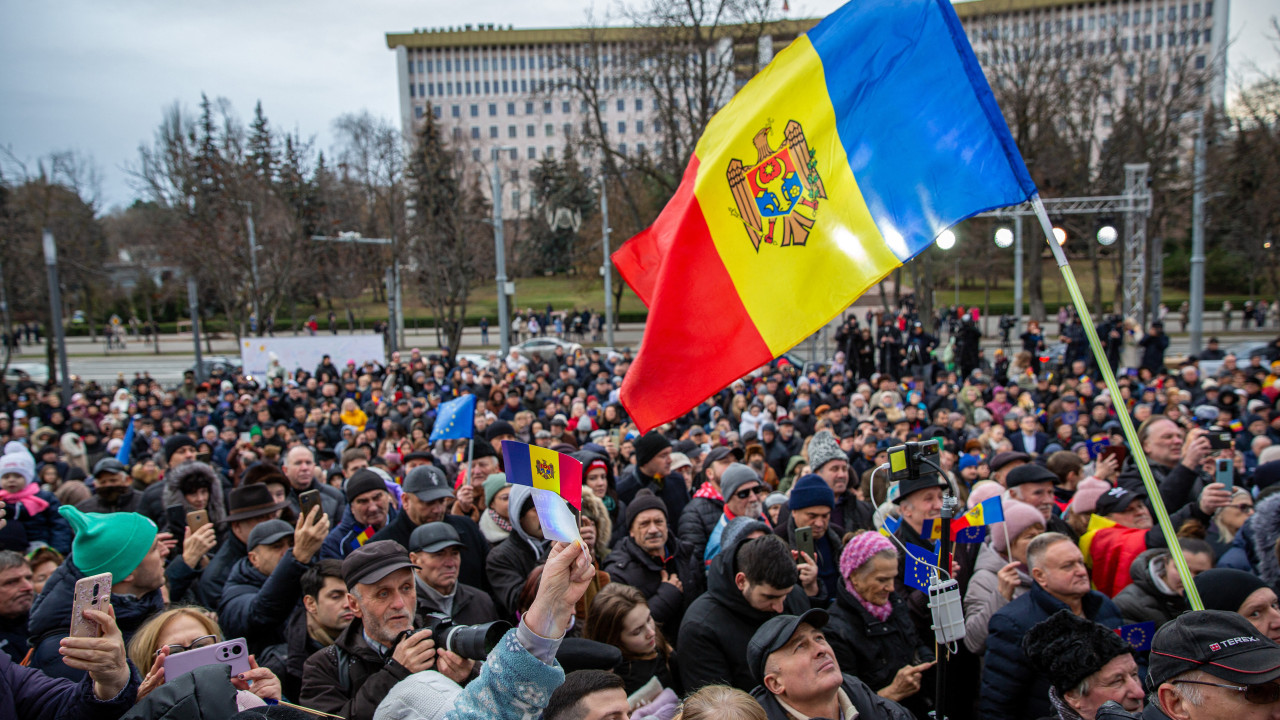
“A The initiative was adopted with the votes of 56 deputies. The referendum was called for October 20th”, declared Igor Grosu, president of the parliament, about the vote, which was broadcast live on the social network Facebook.
Calling the referendum was made possible thanks to votes from the ruling Action and Solidarity Party, which holds more than half of the seats in the Moldovan parliament.
Later, Moldovan deputies also called presidential elections for the same day.
The opposition called on MPs to postpone the decision, claiming that there is no unanimous support for EU membership in Moldovan society.
Communists and socialists considered holding a referendum premature, as the country has not yet started EU accession negotiations.
In mid-April, the Constitutional Court of Moldova approved the referendum, by including in its preamble that “European integration is the strategic objective of Moldova” and “the European identity of the people” of the Republic of Moldova.
“Do you support Moldova’s accession to the EU?” will be the question that Moldovans will have to answer.
Moldova’s pro-European President Maia Sandu plans to run for re-election on October 20, when Moldovans will also vote for or against EU membership.
The rapprochement with the EU began with Sandu’s ascension to the Presidency in 2020, accelerated with his party’s absolute majority in the parliamentary elections the following year and deepened with Moldova’s support for Ukraine since the beginning of the Russian military intervention in 2022.
Brussels decided in December to open accession negotiations with Moldova and Ukraine.
Furthermore, in recent years, the Moldovan government has worked to combat Russian influence in local politics and society by banning the Shor (pro-Moscow) party and restricting the dissemination of Kremlin propaganda media.
This week, Moldovan authorities also asked the courts to ban the Chance party for six months, on suspicion of being linked to businessman Ilon Shor, who was granted Russian citizenship today.
Separatists from the Transnistria region and the Gagauzia autonomy, whose leader recently met in Moscow with Kremlin leader Vladimir Putin, reject Sandu’s pro-European policies.
With around 2.5 million inhabitants, Moldova is located between Romania and Ukraine.
The Moldovan breakaway region of Transnistria rose to prominence after the start of the war in Ukraine due to its ties with Russia and its important geostrategic position.
Kyiv even denounced alleged Russian incursions into western Ukraine from the separatist region.
Russia maintains a contingent of 1,500 soldiers in Transnistria, whose pro-Moscow separatists have controlled the territory since Moldova’s civil war in 1992.
Read Also: Moldova goes to court to try to ban pro-Russian party

Download our free App.
Eighth consecutive year Consumer Choice for Online Press and elected product of the year 2024.
* Study by e Netsonda, Nov. and ten. 2023 product of the year – pt.com
Source: https://www.noticiasaominuto.com/mundo/2562333/moldova-referenda-adesao-a-uniao-europeia-a-20-de-outubro



